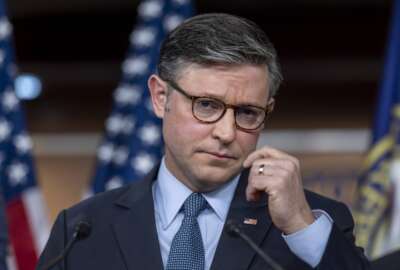Carper pushes energy efficiency standards
Legislation calls for agencies to adopt computer power savings techniques, implement advanced metering technology and create energy data standards.
By Meg Beasley
Federal News Radio
The greening of government is gaining momentum as agencies realize that energy efficiency and the use of renewable resources help both the environment and agency budgets.
Sen. Tom Carper (D-Del.) hopes to codify this trend with legislation proposed on April 22 and brought before the Senate Energy and Natural Resources Committee Tuesday. The bill would require all agencies to adopt energy efficiency standards and invest in renewable technologies.
The Improving Energy Efficiency and Renewable Energy Use By Federal Agencies Act of 2010 — S.3251 — is a series of proposals that Carper says will let the federal government take advantage of clean energy opportunities and technologies that already exist in order to reduce the national energy bill, save tax payers money and help the environment.
Carper says that the government is the largest single energy consumer in the country, accounting for 1.5 percent of all energy used in fiscal 2008. Agencies spent $25 billion in 2008 on energy, including $7 billion of that to operate federal buildings.
“With a price tag that large…there’s got to some significant opportunities for savings,” Carper says.
The legislation proposes:
- Extending the duration of power purchasing agreements (PPAs) of all agencies from 10 to 50 years
- Adopting computer power saving techniques
- Implementing advanced metering technology to better manage government energy usage
- Establishing a $500 million revolving fund to help agencies develop and implement new best practices
- Creation of a federal agency management and data collection standard
- Allowing agencies to keep any funds they save by reducing electricity costs
- Offering incentives for agencies that enter into utility energy savings contracts
Most of the programs mentioned in S.3251 do not involve new technology. Instead, they focus on expanding the use of practices and tools already used by both private companies and government agencies.
For example, the bill would implement advanced metering practices, developed and used by Wal-Mart, to remotely monitor and regulate energy use.
Also, the Veterans Affairs Department recently mandated the use of computer hardware, energy efficiency software and power management tools to reduce power consumption. Steps are as simple as turning off the computers at the end of the work day. VA predicts that the changes will save the agency $32 million over the next five years.
Under Carper’s legislation, agencies would get to keep their savings. Carper says this would “help the government lead by example, demonstrate to the American people that energy efficiency can pay dividends in saving money and preserving our environment.”
The proposal was brought before the committee with several other proposed pieces of legislation: S. 3460, regarding solar panel rebates; S.3396, the Supply Star Act of 2010; S.679, the Heavy Duty Hybrid Vehicle Research, Development, and Demonstration Act of 2009; S.3233, the Surplus Uranium Disposition Act of 2010; and S.2900, the Gas Turbine Efficiency Act of 2009.
(Copyright 2010 by FederalNewsRadio.com. All Rights Reserved.)
Copyright © 2025 Federal News Network. All rights reserved. This website is not intended for users located within the European Economic Area.





